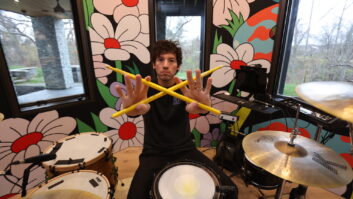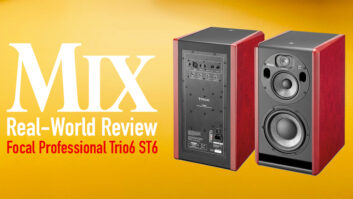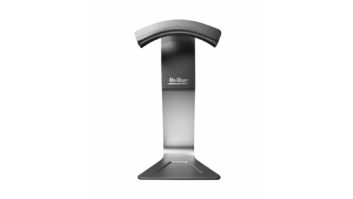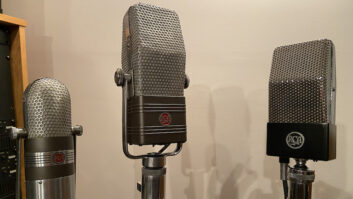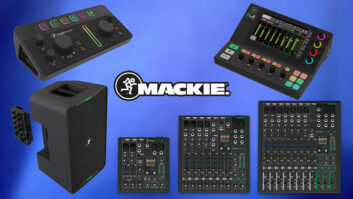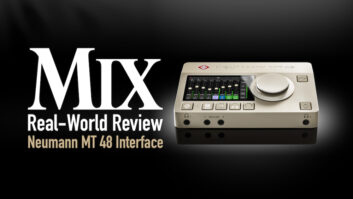We get an avalanche of press releases every day, sent in from manufacturers, studios, live sound vendors, bands and others around the pro audio industry. To be honest, some days there’s so many that they become a giant blur of promotion where nothing stands out. But today, I stumbled across one release for a new boutique studio in Boston, Plaid Dog—and this one stood out for an unexpected reason.

The studio release is different from the others we got today, not for what it tells you about, so much as what it doesn’t tell you about. For instance, it doesn’t mention a single piece of gear. The actual process of recording? One sentence. Who’s recorded there? Two short examples at the end. Those are all things we see dozens of times a week in the studio releases we get. But that hardly means the release is poorly written—after all, it stood out.
Instead, the release focuses unwaveringly on the online awareness services that the studio offers. “Along with audio engineering and producer services, Plaid Dog provides a host of tools that help musicians raise funds via crowd sourcing sites such as IndieGoGo and Kickstarter,” says the release, as it goes on to tout social media marketing expertise, traditional publicity to journalists and bloggers, fund raising campaign development abilities and more.
My first reaction—and I’ll say right up front that I’ve since changed my mind—was that the release was a bit of a downer. How sad that a studio was reduced to not talking about what it does best, which is recording; that it was forced to ignore the solid audio gear cataloged on the Plaid Dog website, or the impressive list of clients who’ve worked with owner Mike Davidson and his team. Instead, here they were, focusing exclusively on services that had nothing to do with recording.
As it turned out, considering the word “services” was what changed my mind. Put aside assiduously collected gear, carefully built recording spaces and all that for a moment, and what you’re left with is the fact that recording is in some ways a service industry, the service being “I can do something for you that you can’t do yourself.” With competition today coming not only from other studios but also potential clients themselves who feel they kinda know their way around Pro Tools and that’s good enough, it may not be enough to merely be better than the competition.
Owners of any business in any industry have to figure out what their clients need and then answer that need—and “figuring out how to pay for recording” and “figuring out what to do with that recording afterwards” have always been reasonable concerns for artists.
Given today’s climate where more artists are independent and can’t make a few bucks selling a CD anymore, “how to pay for it” becomes even more important. “What to do with it,” too, usually means publicity, and as far as that’s concerned, just go back to the first sentence of this blog post. However, crowd-funding and social media networking can often be answers to those needs (though not always); just because those answers don’t involve a microphone or an esoteric piece of gear doesn’t mean that they’re out of the realm of possibility when it comes to services a studio can offer. Slowly, it dawned on me that—duh—studios have always offered non-recording related services, like CD replication, for instance; if social media services can be another arrow in a studio’s quiver, heck, why not?
Ultimately, the press release was actually rather inspiring. Here was a studio that was finding a new way to separate itself from the competition. Is touting your social media expertise unusual? Sure, but it worked—it stood out from the avalanche. If the world around studios keeps changing, then it’s only smart for studios to change, too; in turn, then, it’s also only fair to keep an open mind as to what a studio can be—and what it may become
What do you think? Did the studio sell itself short not focusing on its recording services? Is it forward-thinking or trying to be all things to all people? Have you offered non-traditional services at your studio? Share your thoughts in the comments section below!

